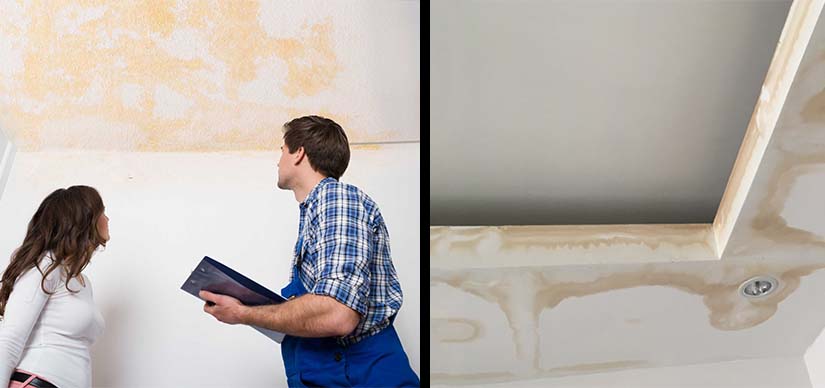Ways to Detect Water Leakages in Underground Pipes
Views : 591
.jpg)
Are you looking forward to finding ways to detect the water leakages in the underground pipes? You are at the right spot. Here, you will find the best ways to find water leakages in underground pipes. You can use various tools to detect leakages underground. Detecting underground water leaks in properties in Los Angeles enables you to avoid wasting water and money. If you detect an unexpected increase in your water bill, it’s a good idea to investigate as soon as possible.
Ignoring an underground water leak might result in many problems that require costly repairs and replacements. The good news is that expert leak detection services can quickly identify and resolve leaky situations. Suppose you are keen on knowing how to locate a water leak in underground pipes on your own. Continue reading for step-by-step instructions.
Water leaks in both residential and business settings frequently begin as minor issues. When you are knee-deep in the water, you realize you have a big problem with molds. It is a method to detect or find leakages in underground pipelines. You can also use this method for exposed pipelines. You can find leakages by using different techniques. You can also use various tools to find leakage in water pipelines. Therefore, using modern technology makes it easy to find leakage in pipes.
Primary Causes of Water Leaks
There are numerous causes of water leaks in buildings. But they all begin with damage to the joints, pipes, tanks, and other components of the building’s water and drainage systems. We need the best water leak detector services in Los Angeles to avoid disaster. Corroded or fractured pipes may become porous and leaky over time, or a quick attack of harsh weather may result in storm damage or freezing and cracking. Constant vibration caused by traffic or nearby construction can loosen joints, allowing water to flow out. You can find different reasons for leakages in pipelines.
Failure of pipes, joints, and other components during the initial installation of the water system and accidental damage by personnel at a later stage can result in instant leaks. Pipes and fittings can also be fractured due to settling or structural movement. Additionally, you should examine sources outside of your structures and limits. Leaks might arise from adjacent homes or land, whether damage has happened to third-party water pipes, drainage systems, or sewers. The primary leakage can be different for a different kind of material of the pipeline.
Results Of Potential Damages Due To Water Leaks
One of the reasons water leaks can cause so much costly damage is because water pipes are typically hiding beneath the ground, behind floorboards, in walls, or above ceilings in most structures. While detecting a leak, a slowly leaking or dripping pipe may be undetectable at first. They can cause damage to the building material, dampness, mold growth, and, in the most difficult situations, structural damage. It is also one of the reasons that the water may contain toxic elements which damage the pipeline, and then leakages may occur.
Water leak detection in Los Angeles frequently goes unnoticed due to hectic life routines. Until they cause significant damage to a house, once the leak’s location has been determined, gaining access to the pipes or complex components to fix them may require additional investment in excavations, ripping up flooring, or removing plaster from the walls. However, if a water leak is discovered before, it has a chance to cause extensive damage to your house. It is more likely to result in a manageable repair bill.
On the other hand, you don’t notice a leak until it’s been dripping or leaking for months or years. The damage could be considerable, and your repair costs could be significantly higher. Addressing leaks that have gone undetected for an extended period may involve using fungicides and other treatments to eradicate molds and fungi that have grown in floor voids or inside walls.
8 Proven Ways To Detect Water Leakages In Underground Pipes

Water Pressure Issues in the Home:
If you notice a decrease in your water pressure, particularly a sudden decrease, this could indicate a leak. Even if you notice a drop in water pressure in a single fixture or faucet, it is a potential sign of a water leak. However, if you find a lack of pressure across your entire property, this could be a sign of an underground water leak.
Evaluate Your Water Meter:
Examining the water meter is one of the best ways to detect water leak problems in Los Angeles. It is the simplest way to know if you have an underground water leak or not. Stop the water supply to the whole house, ensuring that no faucets are flowing. Additionally, verify that the dishwasher, filter systems, toilets, and washing machine are not operating. Ideally, you’ll utilize the shutoff valve at the water main to shut off your water supply.
Then, keep an eye on the meter and watch for it to change. If you notice a change, it is most likely due to a rapid leak. If you do not instantly see the meter change, this does not indicate you are safe. Wait thirty minutes without turning on any water in the house and recheck it. The leak can be located anywhere, and it is occasionally discovered underground. You need to rely on the best water leak detector company in Los Angeles to identify underground water leaks.
Examine Your Bill & Consumption:
The Environmental Protection Agency (EPA) recommends monitoring your water usage throughout the winter months. If a household of four consumes more than 12,000 gallons of water per month, there are chances of major leaks. You need to check your bills regularly so that you may not have to face issues in the future.
Keep a close check on your bill and notice any significant changes. If you see your water bill continues to rise, but there is no obvious cause for it, take these measures to establish if there is a leak. It is easy to examine. You need to check it after a regular interval of time.
It may include placing food coloring in your toilet tank to check for leaks, inspecting faucets, and evaluating your water heater, among other quick tests. If the growth is consistent over a few months, there is certainly a leak somewhere in the home.
Puddles On The Lawn:
If you notice any standing water in your yard that is not associated with a rainy season, there are several possible causes. Puddles are frequently caused by poorly draining soil. And when there is a significant amount of water due to a leak underneath, even well-draining soil will reach a limit where it can no longer contain any more water.
It will result in swelling and puddling of the earth and soil. And the longer the water remains there, the greater the potential for damage. Not only are you at risk of an underground leak, but standing water also provides an ideal breeding site for mosquitoes. Eventually, grass will cease to grow, and the sump will take its place.
Excessive Water In The Soil Surrounding Your House:
If you observe that the soil surrounding your home has become unstable due to increased moisture (and, of course, there has been no recent rain), this could signal an underground pipe leak. The soil immediately surrounding the leak is frequently soaked with water, resulting in greener vegetation. You will suspect a problem like digging a hole in the dirt near the location of the leak, as the hole will get filled with water on its own. Soil that has been saturating with water rapidly destabilizes. Ignoring the problem could cost you hundreds of dollars in repair costs.
Foundation Damages:
If a water leak occurs beneath the concrete slab on which your home is built, the leaking water might seep into the foundation, causing fissures. If the leak is allowed to continue for an extended period, it will undermine the general structure of your home and may result in wall cracks.
Make it a habit to regularly inspect your foundation for cracks and other moisture indicators. Contact an experienced professional in Los Angeles to detect water leaks immediately if you see a crack.
Look At the Water Noises:
If you hear voices like running water yet, there is none in your home, which is a solid sign of a leak. Additionally, you may hear whistling, dripping, hissing, or spraying noises coming from the pipes.
Wet Floors or Walls:
If your floor appears to be somewhat damp or if you discover dampness in your drywall. It is cause for concern. Suppose the leak has been active for an extended period. You may even smell mildew or see mold. If you also notice warmth in specific floor places, this may indicate a leak in hot water lines.
Bear in mind that your homeowner’s insurance will likely cover the cost of most water damage but not likely the cost of complete pipe replacement. Your insurance carrier may request proof of repair to pass coverage. The earlier you act, the better t is.

.jpg)

.jpg)
